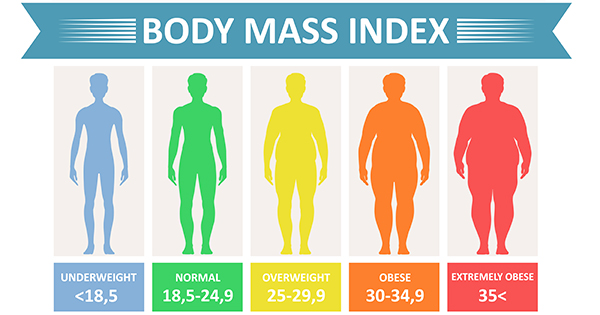
What is BMI?
Maintaining a healthy body weight is crucial for overall well-being. It not only helps in reducing the risk of various health issues but also contributes to improved energy levels and a better quality of life. One widely used metric to assess and monitor body weight is BMI or Body Mass Index. Let's delve into what BMI is and how it can be a helpful tool in managing your health.

Understanding BMI Categories:
- Underweight (BMI < 18.5):
- Individuals with a BMI below 18.5 are considered underweight. This may indicate insufficient nutrition or underlying health issues. It's important to consult a healthcare provider if you fall into this category.
- Normal Weight (BMI 18.5 - 24.9):
- A BMI within the range of 18.5 to 24.9 is considered normal. This range is associated with the lowest risk of health problems related to weight.
- Overweight (BMI 25 - 29.9):
- Individuals with a BMI between 25 and 29.9 are classified as overweight. This may indicate excess body fat, which can lead to health issues if not addressed.
- Obesity (BMI ≥ 30):
- Obesity is defined as having a BMI of 30 or higher. It is associated with an increased risk of several serious health conditions, including heart disease, diabetes, and certain types of cancer.

Limitations of BMI:
- Doesn't Differentiate Between Muscle and Fat:
- BMI doesn't distinguish between muscle and fat. Athletes or individuals with high muscle mass may have a higher BMI, but they are not necessarily overweight or obese.
- Doesn't Consider Distribution of Fat:
- It doesn't take into account where fat is located in the body. Central or abdominal fat is more strongly associated with health risks than fat in other areas.
- Doesn't Capture Individual Variations:
- BMI doesn't account for variations in bone density, age, or gender, which can affect body weight.
Using BMI as a Starting Point:
While BMI provides a useful snapshot of overall health, it's important to remember that it's just one tool in the toolbox. Consulting a healthcare professional for a comprehensive assessment is crucial. They can consider other factors like waist circumference, lifestyle, and medical history to provide a more personalized evaluation.
BMI Calculator
Conclusion:
Understanding BMI is a valuable step towards achieving and maintaining a healthy body weight. However, it's important to use it in conjunction with other measures and consult with a healthcare provider for personalized advice. Prioritize overall well-being, and you'll be on your way to a healthier, happier you!
